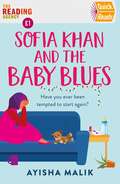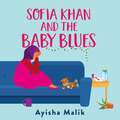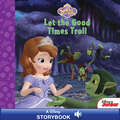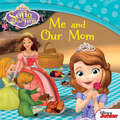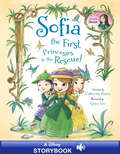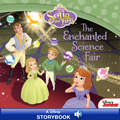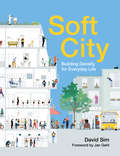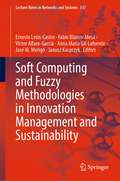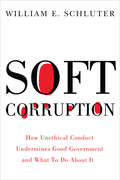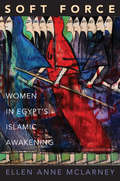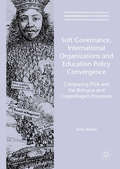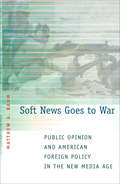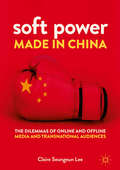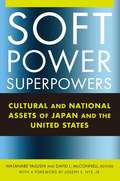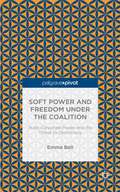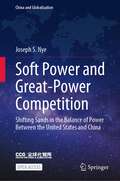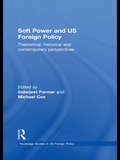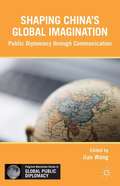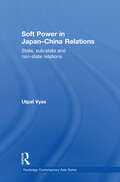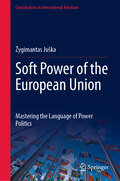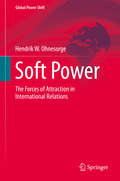- Table View
- List View
Sofia Khan and the Baby Blues
by Ayisha MalikTHE AWARD-WINNING AUTHOR OF THE HILARIOUS ROMANTIC COMEDY SOFIA KHAN IS NOT OBLIGED'The perfect balance of romance and humour' INDEPENDENT'Fun, fresh and funny' MHAIRI MCFARLANE'A smart romcom . . . Huge fun' JENNY COLGANSofia Khan is going about everything the wrong way. At least, that's what her mother, Mehnaz, thinks. Sofia is twice-divorced, homeless and - worst of all - refusing to give up on a fostered baby girl. Sofia's just not behaving like a normal woman should.Sofia doesn't see it like that. She's planning to adopt Millie, and she's sure it'll be worth it. (Even if it means she and Millie have to stay at Mehnaz's place for a while.) And as Sofia finally begins to live the life she's chosen, she finds both romance and happiness start to blossom.But then someone comes back from the past - and not even Sofia's own past. Suddenly, she's faced with a choice. To do what's best for those she loves, Sofia might have to break her own heart. And she might find herself needing the last person she expected . . .** The anticipation is already building for Ayisha Malik's fiercely original and bold new book, THE MOVEMENT, coming spring 2022 **
Sofia Khan and the Baby Blues
by Ayisha MalikTHE AWARD-WINNING AUTHOR OF THE HILARIOUS ROMANTIC COMEDY SOFIA KHAN IS NOT OBLIGED'The perfect balance of romance and humour' INDEPENDENT'Fun, fresh and funny' MHAIRI MCFARLANE'A smart romcom . . . Huge fun' JENNY COLGANSofia Khan is going about everything the wrong way. At least, that's what her mother, Mehnaz, thinks. Sofia is twice-divorced, homeless and - worst of all - refusing to give up on a fostered baby girl. Sofia's just not behaving like a normal woman should.Sofia doesn't see it like that. She's planning to adopt Millie, and she's sure it'll be worth it. (Even if it means she and Millie have to stay at Mehnaz's place for a while.) And as Sofia finally begins to live the life she's chosen, she finds both romance and happiness start to blossom.But then someone comes back from the past - and not even Sofia's own past. Suddenly, she's faced with a choice. To do what's best for those she loves, Sofia might have to break her own heart. And she might find herself needing the last person she expected . . .(P) 2022 Headline Publishing Group Ltd
Sofia the First: A Royal Mouse in the House
by Disney Book GroupRead along with Disney! It's the day of the Enchancia Pet Show, and everyone is excited. The pet-owning students of Royal Prep are all there including Hildegard and her mink, Lulu. Suddenly, Lulu jumps out of Hildegard's arms and runs away. While trying to find her pet, Hildegard is turned into a mouse! Sofia and Clover try to solve the mystery and reverse the spell. But they'll have to hurry—the show is about to begin! This beautiful storybook with full-color illustrations and word-for-word narration will be perfect for any Disney Junior fan!
Sofia the First: Let the Good Times Troll
by Disney Book GroupAfter Sofia befriends the cute, friendly trolls who live in a cave near the castle, it's up to her to show King Roland and her family that they shouldn't judge or fear the trolls without getting to know them first.
Sofia the First: Magical Match
by Disney PressRead along with Disney! Sofia visits her friend, Lucinda, one afternoon and is delighted to learn that she also has a pet bunny —a girl bunny at that. Sofia and Lucinda think their bunnies should be the best of friends, but sparks do not seem to be flying when Clover and Hexie meet. Lucinda decides to speed things up with a love potion, but the results aren't what Sofia expects at all! Join Sofia in this adorable storybook with word for word narration!
Sofia the First: Me and Our Mom
by Disney Book GroupRead along with Disney! Sofia is so excited to spend the day with her mom at the annual Mother's Day Picnic —until she learns that Amber and James are joining too. Sofia wants her mom to herself on Mother's Day! But when her witch friend Lucinda offers a helping spell that ultimately backfires, Sofia learns that it's important to share this special day —and her mom.
Sofia the First: Princesses to the Rescue!
by Catherine HapkaRead along with Disney! While visiting the Kingdom of Wei-Ling, James and Prince Jin set off to search for the legendary treasure of the Jade Jaguar but soon find themselves trapped in the jaguar's den! It's up to Sofia, Amber, and Princess Jun to rescue their families! Follow along with word-for-word narration to see if Mulan can help the princesses save the day in time!
Sofia the First: The Curse of Princess Ivy
by Disney PressRead along with Disney! In this beautifully illustrated eBook, Sofia faces grave danger when she faces Princess Ivy, a once-exiled princess who is determined to take over Enchancia and turn the whole kingdom black and white. Follow along with word-for-word narration to find out if Sofia and Amber can work together to save their family and their kingdom!
Sofia the First: The Enchanted Science Fair
by Disney PressRead along with Disney! It's almost time for the Enchanted Science Fair, and every student wants to win! When Sofia and her friends discover that they need to find a magical ingredient at the top of a mountain, they compete to see who can reach the summit first —at the risk of their science projects and their friendships! Can Sofia convince her fellow students that friendship and teamwork are more important than victory? Follow along with word-for-word narration to find out!
Soft City: Building Density for Everyday Life
by David SimIn Soft City David Sim, partner and creative director at Gehl, shows how cities with well-designed density can result in a higher quality of life. He presents ideas and graphic examples from around the globe. He draws from his vast design experience to make a case for a dense and diverse built environment at a human scale, which he presents through a series of observations of older and newer places, and a range of simple built phenomena, some traditional and some totally new inventions. Soft City offers inspiration, ideas, and guidance in a highly visual package, for anyone interested in city building. Sim shows how to make any city more efficient, more livable, and better connected to the environment.
Soft Computing and Fuzzy Methodologies in Innovation Management and Sustainability (Lecture Notes in Networks and Systems #337)
by Anna Maria Gil-Lafuente Janusz Kacprzyk José M. Merigó Ernesto León-Castro Fabio Blanco-Mesa Victor Alfaro-GarcíaThis book provides recent research on soft computing and fuzzy methodologies in innovation management and sustainability. The uncertainty in the business world is increasing. Significant changes are generated unexpectedly, so using fuzzy logic and soft computing methods allows us to create flexible scenarios adaptable to new realities. Within the book, we will find different applications of fuzzy methodologies that can apply to various topics such as sustainability, innovation, tourism, costs, exports, systems administration, among others. The book's main contribution is the applicability of the various methodologies to specific cases, which allows generating a relationship between theory and practice. In addition, it has some bibliometric studies on various topics that give us a visualization of what has happened and where multiple topics are headed. This book is recommended mainly for students who wish to know how the various fuzzy and soft computing tools can be taken to real situations, allowing a better understanding of these and generating new visions of future applicability.
Soft Corruption: How Unethical Conduct Undermines Good Government and What To Do About It
by William E. SchluterNew Jersey has long been a breeding ground for political corruption, and most of it is perfectly legal. Public officials accept favors from lobbyists, give paid positions to relatives, and rig the electoral process to favor their cronies in a system where campaign money is used to buy government results. Such unethical behavior is known as “soft corruption,” and former New Jersey legislator William E. Schluter has been fighting it for the past fifty years. In this searing personal narrative, the former state senator recounts his fight to expose and reform these acts of government misconduct. Not afraid to cite specific cases of soft corruption in New Jersey politics, he paints a vivid portrait of public servants who care more about political power and personal gain than the public good. By recounting events that he witnessed firsthand in the Garden State, he provides dramatic illustrations of ills that afflict American politics nationwide. As he identifies five main forms of soft corruption, Schluter diagnoses the state government’s ethical malaise, and offers concrete policy suggestions for how it might be cured. Not simply a dive through the muck of New Jersey politics, Soft Corruption is an important first step to reforming our nation’s political system, a book that will inspire readers to demand that our elected officials can and must do better. Visit: www.softcorruption.com (http://www.softcorruption.com)
Soft Force: Women in Egypt's Islamic Awakening
by Ellen Anne MclarneyIn the decades leading up to the Arab Spring in 2011, when Hosni Mubarak's authoritarian regime was swept from power in Egypt, Muslim women took a leading role in developing a robust Islamist presence in the country's public sphere. Soft Force examines the writings and activism of these women--including scholars, preachers, journalists, critics, actors, and public intellectuals--who envisioned an Islamic awakening in which women's rights and the family, equality, and emancipation were at the center.Challenging Western conceptions of Muslim women as being oppressed by Islam, Ellen McLarney shows how women used "soft force"--a women's jihad characterized by nonviolent protest--to oppose secular dictatorship and articulate a public sphere that was both Islamic and democratic. McLarney draws on memoirs, political essays, sermons, newspaper articles, and other writings to explore how these women imagined the home and the family as sites of the free practice of religion in a climate where Islamists were under siege by the secular state. While they seem to reinforce women's traditional roles in a male-dominated society, these Islamist writers also reoriented Islamist politics in domains coded as feminine, putting women at the very forefront in imagining an Islamic polity.Bold and insightful, Soft Force transforms our understanding of women's rights, women's liberation, and women's equality in Egypt's Islamic revival.
Soft Governance, International Organizations and Education Policy Convergence
by Tonia BieberThis book examines the extent to which international organizations have shaped reforms in education and training in federalist countries with regards to policy convergence. In advanced democracies, international organizations have become increasingly influential in government activity. This also applies to policy fields that have traditionally been nearly exclusively regulated by the nation-state. How strong is their influence in policy fields like education where they rely on purely soft governance to stimulate national policies? From a political science perspective, three major initiatives are analyzed: the OECD's PISA study, the European Bologna process and the European Union's Copenhagen process. Within a few years, these initiatives have contributed to deep transformations within the education arena. This book elucidates the processes in which nation-states comply with these initiatives, using the examples of Switzerland and the United States. div>
Soft News Goes to War: Public Opinion and American Foreign Policy in the New Media Age
by Matthew A. BaumThe American public has consistently declared itself less concerned with foreign affairs in the post-Cold War era, even after 9/11, than at any time since World War II. How can it be, then, that public attentiveness to U.S. foreign policy crises has increased? This book represents the first systematic attempt to explain this apparent paradox. Matthew Baum argues that the answer lies in changes to television's presentation of political information. In so doing he develops a compelling "byproduct" theory of information consumption. The information revolution has fundamentally changed the way the mass media, especially television, covers foreign policy. Traditional news has been repackaged into numerous entertainment-oriented news programs and talk shows. By transforming political issues involving scandal or violence (especially attacks against America) into entertainment, the "soft news" media have actually captured more viewers who will now follow news about foreign crises, due to its entertainment value, even if they remain uninterested in foreign policy. Baum rigorously tests his theory through content analyses of traditional and soft news media coverage of various post-WWII U.S. foreign crises and statistical analyses of public opinion surveys. The results hold key implications for the future of American politics and foreign policy. For instance, watching soft news reinforces isolationism among many inattentive Americans. Scholars, political analysts, and even politicians have tended to ignore the soft news media and politically disengaged citizens. But, as this well-written book cogently demonstrates, soft news viewers represent a largely untapped reservoir of unusually persuadable voters.
Soft Power Made in China: Transnational Audiences And The Dilemmas Of Online And Offline Media
by Claire Seungeun LeeThis book analyzes the ways in which China’s soft power growth faces dilemmas in East Asia through both online and offline platforms. One dilemma for China’s transnational soft power-field expansion lies in the intersection of its source and receiving countries. The author discusses how transnational audiences’ consumption and reception of Chinese television series are shaped by domestic factors, with interpretations of and desires for different forms of capital, further inhibiting the foreign export of these series. Another dilemma is the “outsourced soft power.” While Hong Kong and Taiwan play significant roles as outsourced soft power mediators, their under-established emerging digital media platforms have yet to meet the expectations of transnational audiences in a virtual transnational soft power field. Grounded in the author’s multi-site field research focused on television spheres, Soft Power Made in China argues that China’s soft power paradox in South Korea and Japan—two quasi-Sinophone countries—is not due to a lack of state-level strategy, but linked to soft power pathways that rely on production in one source country, and both distribution and reception in a receiving country.
Soft Power Superpowers: Cultural And National Assets Of Japan And The United States
by Yasushi Watanabe David L McConnellThe term "soft power" describes a country's ability to get what it wants by attracting rather than coercing others - by engaging hearts and minds through cultural and political values and foreign policies that other countries see as legitimate and conducive to their own interests.This book analyzes the soft power assets of the United States and Japan, and how they contributed to one of the most successful, if unlikely, bilateral relationships of the twentieth century. Sponsored by the U.S. Social Science Research Council and the Japan Foundation's Center for Global Partnership, the book brings together anthropologists, political scientists, historians, economists, diplomats, and others to explore the multiple axes of soft power that operate in the U.S.-Japanese relationship, and between the United States and Japan and other regions of the world.The contributors move beyond an "either-or" concept of hard versus soft power to a more dynamic interpretation, and demonstrate the important role of non-state actors in wielding soft power. They show how public diplomacy on both sides of the Pacific - bolstered by less formal influences such as popular cultural icons, product brands, martial arts, baseball, and educational exchanges - has led to a vibrant U.S.-Japanese relationship since World War II despite formidable challenges. Emphasizing the essentially interactive nature of persuasion, the book highlights an approach to soft power that has many implications for the world today.
Soft Power With Chinese Characteristics: China’s Campaign for Hearts and Minds
by Stanley Rosen Ying Zhu Kingsley EdneyThis book examines the Chinese Communist Party’s attempts to improve China’s image around the world, thereby increasing its "soft power." This soft, attractive form of power is crucial if China is to avoid provoking an international backlash against its growing military and economic might. The volume focuses on the period since Xi Jinping came to power in 2012, and is global in scope, examining the impact of Chinese policies from Hong Kong and Taiwan to Africa and South America. The book explains debates over soft power within China and delves into case studies of important policy areas for China’s global image campaign, such as film, news media and the Confucius Institutes. The most comprehensive work of its kind, the volume presents a picture of a Chinese leadership that has access to vast material resources and growing global influence but often struggles to convert these resources into genuine international affection. Soft Power With Chinese Characteristics will be invaluable to students and scholars of Chinese politics and Chinese media, as well as international relations and world politics more generally.
Soft Power and Freedom under the Coalition: State-Corporate Power and the Threat to Democracy
by Emma BellThis study of five key policy areas, from welfare reform to foreign policy, demonstrates that the Conservative-Liberal Democrat coalition failed to fulfil its promise to reverse the rising power of the State. It exercised more subtle forms of 'soft power', often in partnership with the private sector, and to the detriment of ordinary citizens.
Soft Power and Great-Power Competition: Shifting Sands in the Balance of Power Between the United States and China (China and Globalization)
by Joseph S. NyeThis open access book consists of essays selected from Joseph S. Nye, Jr.’s last three decades of writing and illustrate a variety of perspectives on the nature of power, the role of the United States in the world and US-China relations. Through this collection, it is hoped that readers will gain a better understanding of today’s global environment and find that while great power competition may be inevitable in a world as centers of power shift, cooperating to address transnational challenges can be a positive sum game.The contents of this book are divided into four main parts. Part One discusses the origins and political progress of the concept of “Soft Power”. Part Two explores soft power in the American experience, its sources and interaction with US foreign policy, as well as its ebb and flow in the age of Obama, Trump and Biden. Part Three examines the rise of and the opportunities and difficulties for Chinese soft power, focusing on China’s investment in soft power and how this demonstrates its commitment to a peaceful rise. However, it also addresses the question of how can China get “smart” on how it uses soft power. Part Four provides a bird’s-eye view of power shifts in the 21st century and the interactions between the US as an established power and China as a rising power, while also reassuring readers that Thucydidean fears are unnecessary and a Cold War is avoidable. Both countries have to realize that some forms of power must be exercised with others, not over others, the development of soft power need not be a zero-sum game. Ultimately, the US-China relationship is a “cooperative rivalry” where a successful strategy of “smart competition” is necessary and cooperation on transnational challenges like climate change, pandemics, cyberterrorism and nuclear proliferation, will serve to benefit not only China and the US, but the world as a whole.
Soft Power and US Foreign Policy: Theoretical, Historical and Contemporary Perspectives (Routledge Studies in US Foreign Policy)
by Inderjeet ParmarThe rise of widespread negative attitudes towards US foreign policy, especially due to the war of aggression against Iraq and the subsequent military occupation of the country – has brought new attention to the meaning and instruments of soft power. In this edited collection, an outstanding line up of contributors provides the most extensive discussion of soft power to date. Soft power is the use of attraction and persuasion rather than the use of coercion or force in foreign policy. It arises from the attractiveness of a country's culture, political ideals and policies, whereas hard power develops out of a country's military or economic might. Soft Power has become part of popular political discourse since it was coined by Harvard’s Joseph Nye, and this volume features a brand new chapter by Nye outlining his views on soft, hard and smart power and offers a critique of the Bush administration’s inadequacies. He then goes on to examine the challenges for the incoming US president. The other contributions to the volume respond to Nye's views from a range of theoretical, historical and policy perspectives giving new insights in to both soft power and the concept of power itself. This is the most comprehensive and up-to-date analysis of this key concept in foreign affairs and is essential reading for scholars of US foreign policy, public diplomacy, international relations and foreign policy analysis.
Soft Power in China
by Jian WangThis book is about how China strives to rebuild its soft power through communication. It recounts China's efforts by examining a set of public diplomacy tactics and programs in its pursuit of a 'new' and 'improved' global image. These case studies invites the reader to a more expansive discussion on the instruments of soft power.
Soft Power in Japan-China Relations: State, sub-state and non-state relations (Routledge Contemporary Asia Series)
by Utpal VyasSoft power has tended to be overlooked in the field of international relations, often dismissed as lacking relevance or robustness as a theoretical concept. This book seeks to expand upon the idea of ‘soft power’ in international relations and to investigate how it actually functions by looking at three case studies in Japan-China relations during the post-war period. These cases involve the action of Japan’s soft power in China due to the activities of agents at three levels in society: the state level (an agency of the central government), the sub-state level (a local government), and at the non-state level (a non-governmental organisation). In addition, a major theme of the book is to examine the role of important international actors whose roles are not covered sufficiently in international relations discourse. Utpal Vyas demonstrates ways in which soft power is a useful analytical tool to understand relations between China and Japan in the early 2000s. The case studies help to reveal the complexities of interaction between China and Japan beyond the usual state-level analyses and offer a valuable resource for the study of Sino-Japanese relations and IR in general. This book will be of interest to academics and postgraduate students in Japanese studies, Chinese studies and International Relations.
Soft Power of the European Union: Mastering the Language of Power Politics (Contributions to International Relations)
by Žygimantas JuškaThis book sheds light on the complexities of the European Union's (EU) influence in a world dominated by global power politics. Written by an EU diplomat, it explores the dynamic landscape of soft power, with a focus on key regions such as the Western Balkans, Eastern Partnership, Southern Neighborhood, and Sub-Saharan Africa. Presenting the economic, diplomatic, and cultural dimensions, the book critically evaluates the EU's effectiveness in shaping behavior amid intensifying global power competition. With a unique perspective gained from on-the-ground experience in Kosovo, Ukraine, and Rwanda, the author navigates the EU's responses to challenges, including Russia's hard power approach. A must-read for policymakers and diplomats, this book blends academic analysis with practical insights, offering valuable lessons and recommendations for mastering the language of power in today's global politics. Ideal for students and professionals, it provides a comprehensive explorationof EU foreign policy dynamics.
Soft Power: The Forces of Attraction in International Relations (Global Power Shift)
by Hendrik W. OhnesorgeThis book explores the phenomenon of soft power in international relations. In the context of current discourses on power and global power shift s, it puts forward a comprehensive taxonomy of soft power and outlines a methodological roadmap for its empirical study. To that end, the book classifies soft power into distinct components - resources, instruments, reception, and outcomes - and identifies relevant indicators for each of these categories.Moreover, the book integrates previously neglected aspects into the concept of soft power, including the significance of (political) personalities. A broad range of historical examples is drawn upon to illustrate the effects of soft power in international relations in an innovative and analytically differentiated way. A central methodological contribution of this book consists in highlighting the value of comparative-historical analysis (CHA) as a promising approach for empirical analyses of the soft power of different actors on the international stage.By introducing a comprehensive taxonomy of soft power, the book offers an innovative and substantiated perspective on a pivotal phenomenon in today’s international relations. As the forces of attraction in world politics continue to gain in importance, it provides a valuable asset for a broad readership.“In this important and thoughtful book, Hendrik Ohnesorge explains and advances our knowledge of the ways that soft power, public diplomacy, and charismatic personal diplomacy are shaping the international relations of our global information age.” Joseph S. Nye, Jr., Harvard University and author of The Future of Power
